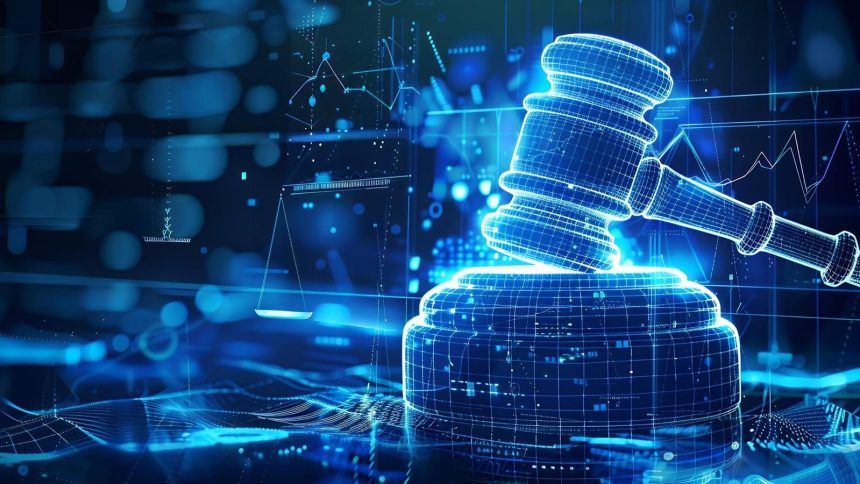The Dawn of AI in Law: Reshaping the Legal Landscape in 2025 and Beyond
The legal profession, traditionally characterized by its reliance on precedent and human interpretation, is undergoing a seismic shift driven by the transformative power of artificial intelligence. This convergence of law and technology, often referred to as lawtech, is not merely an incremental change but a fundamental reshaping of the legal landscape. As we move towards 2025 and beyond, AI is poised to automate routine tasks, enhance efficiency, democratize access to justice, and empower legal professionals to navigate increasingly complex legal challenges with greater precision and insight. This transformation, while offering tremendous potential, also necessitates careful consideration of ethical implications and responsible implementation to ensure a fair and equitable legal system for all.
One of the most significant advancements in lawtech is the advent of large language models (LLMs). These sophisticated AI engines, powering tools like ChatGPT and Gemini, possess the remarkable ability to generate human-like text, including legal documents, summaries of complex cases, and even answers to intricate legal questions. LLMs are becoming increasingly integrated into the workflows of legal professionals, streamlining tasks such as contract drafting and legal research. Furthermore, their application in client-facing platforms offers the potential to provide readily accessible and affordable legal information to the public, empowering individuals and small businesses to better understand their rights and obligations. As LLMs continue to evolve and become more sophisticated, their impact on the legal profession will only intensify, reshaping the roles of lawyers and paralegals, and potentially transforming the client-lawyer relationship.
The rise of AI also necessitates a renewed focus on legal regulation and compliance. As businesses across various sectors integrate AI into their operations, legal professionals will play a critical role in ensuring adherence to evolving regulations and guidelines governing AI use. This includes mitigating risks associated with intellectual property infringement, data privacy breaches, and potential biases embedded within AI algorithms. Lawyers will increasingly specialize in AI law, developing expertise in areas such as data governance, algorithmic auditing, and the ethical implications of AI deployment. This specialized knowledge will be essential in navigating the complex legal landscape surrounding AI and ensuring responsible innovation.
Beyond streamlining legal processes, lawtech is also driving the democratization of justice. Cloud-based self-service portals, powered by AI, are emerging as valuable tools for individuals and small businesses seeking affordable legal solutions. These platforms offer automated document generation, chat-based legal advice, and access to simplified legal resources, effectively lowering the barriers to entry for those who may have previously been priced out of traditional legal services. This increased accessibility has the potential to empower individuals to navigate legal complexities with greater confidence and ensure a more equitable justice system for all.
The automation of routine legal processes is another key aspect of the lawtech revolution. AI-powered tools are increasingly capable of automating tasks such as document review, legal discovery, and contract management. This automation not only reduces the time and cost associated with these tasks but also frees up legal professionals to focus on higher-value activities that require human expertise, such as strategic planning, client communication, and complex problem-solving. Law firms that embrace this shift towards automation will be better positioned to offer more cost-effective services and gain a competitive advantage in the evolving legal market.
AI’s predictive capabilities are also transforming the practice of law, particularly in the realm of litigation. By analyzing vast datasets of past case law and judicial decisions, AI algorithms can provide insights into the likely outcomes of legal disputes. This predictive power empowers legal professionals to make more informed decisions, assess the strength of their cases, and develop more effective litigation strategies. Clients benefit from data-driven legal advice, reducing reliance on speculation and enhancing the transparency and predictability of legal proceedings.
Finally, the increasing reliance on AI in the legal field necessitates a strong emphasis on responsible AI practices. Lawyers and legal departments must prioritize ethical considerations, ensuring that AI systems are used in a fair, transparent, and accountable manner. This includes auditing AI algorithms for bias, safeguarding data privacy, and adhering to ethical guidelines in the development and deployment of AI tools. The role of legal professionals will extend to advising clients and colleagues on responsible AI practices, fostering a culture of ethical AI implementation across industries. This commitment to responsible AI is crucial not only for maintaining public trust but also for shaping a future where AI serves as a force for good within the legal system.
In conclusion, the convergence of law and technology is ushering in a new era for the legal profession. AI is not merely a tool but a transformative force that is reshaping the roles of lawyers, enhancing access to justice, and driving greater efficiency and accuracy in legal processes. As we move forward, embracing ethical considerations and fostering responsible AI practices will be paramount in ensuring that this technological revolution leads to a more just and equitable legal system for all. The future of law is undeniably intertwined with the responsible development and implementation of AI, paving the way for a more accessible, efficient, and equitable legal landscape.



